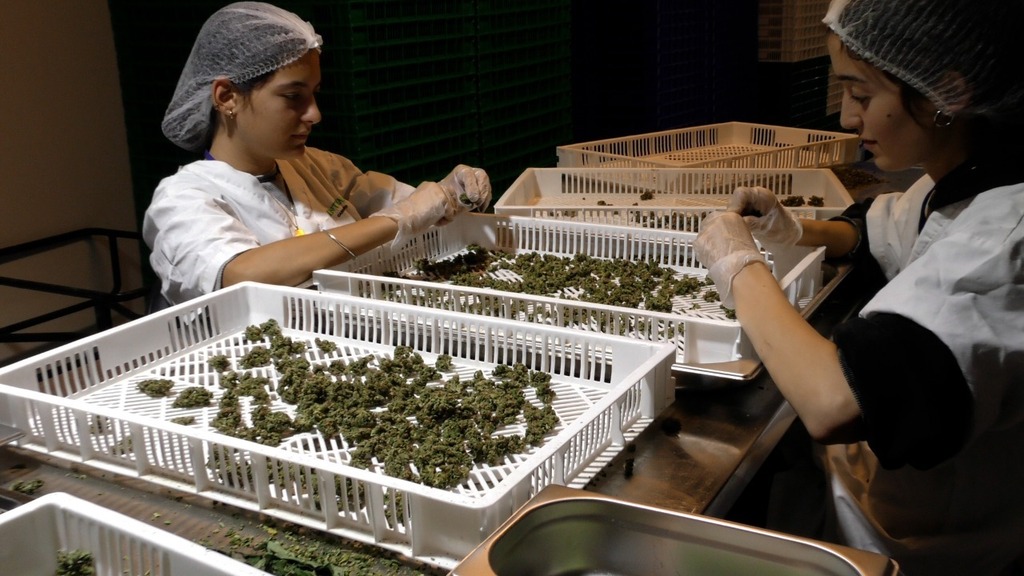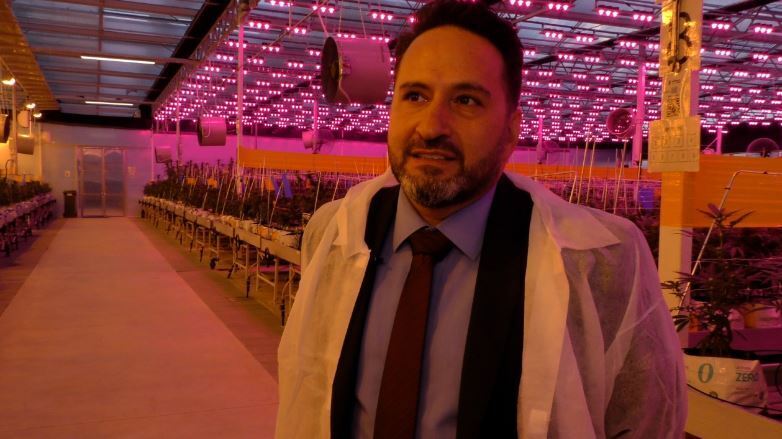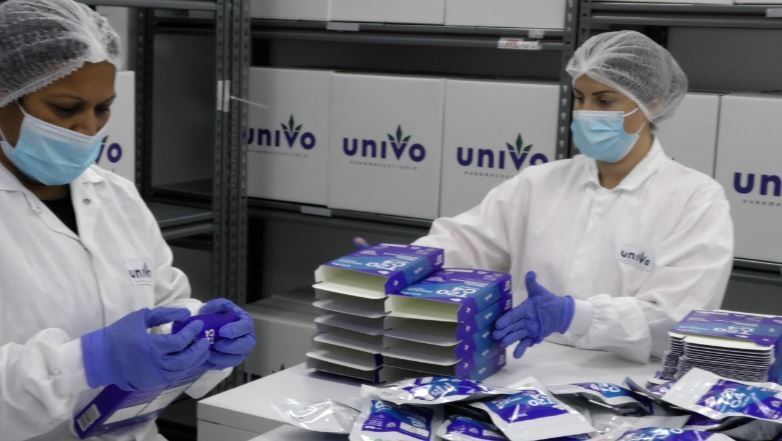Israel’s budding cannabis industry has set its sights on expanding its manufacturing, production and export capabilities, as the country prepares to legalize recreational marijuana in the coming months.
Hagit Weinstock is an attorney specializing in cannabis regulation who co-founded the Tel Aviv-based Weinstock-Zehavi & Co. law firm. She sits on a number of government committees that are working to move legalization efforts forward quickly.
5 View gallery


Workers at Intelicanna's facility sort through cannabis products
(Photo: The Media Line)
“I can see by the committees that I’m part of that everyone is pushing that [legalization] will be done,” Weinstock said. “We already have a draft [law].”
According to the draft law, Israelis over the age of 21 will be allowed to use cannabis and to purchase it at designated stores. Smoking in public places, however, will be forbidden.
Weinstock’s firm is already working with dozens of Israeli and international companies and investors in the growing marijuana sector. Despite the instability of the current Israeli government – and talks of yet another round of elections – she believes that legalization will proceed as planned in the coming months.
“Both sides agree on this issue,” Weinstock says. “They’ve all signed a declaration that this will be an issue that they are going to support so we don’t have dangers with this government or others.”Last week, Health Minister Yuli Edelstein a regulatory amendment permitting the use of CBD (cannabidiol) – one of the key active ingredients of cannabis – in cosmetics and food products.
The Knesset Health Committee is set to discuss and approve the amendment this week, which means that CBD-infused products could soon appear on supermarket shelves across the country.
On top of this milestone, a United Nations commission recently voted to remove medicinal marijuana from its list of world’s most dangerous drugs, where it had been classified since 1961.
The move comes on the recommendation of the World Health Organization (WHO) and could clear the path for medical cannabis research in many parts of the world.
Weinstock believes these recent decisions are only the beginning of a massive shift in global attitudes towards cannabis.
“All the regulations are going to change from March in the whole world,” she asserted.
Although it could take up to a year for the proposed recreational laws to take effect in Israel, the country’s marijuana industry has already begun to strategize for the future.
Founded three years ago, Intelicanna is a cultivator located near the central Israeli city of Ra'anana that grows 5-10 tons of medical cannabis each year. The company uses a special lighting technology that imitates natural sunlight to optimize growing conditions.
“We’re ready to triple our size the moment that it’s ready,” says the chairman and co-founder of Intelicanna, Yona Levy, during a recent tour of the company’s facilities.
While the medical market is currently worth NIS 750 million ($230 million), Levy believes that legalizing recreational cannabis would inject billions of dollars into the Israeli economy.
“There’s an estimate of roughly 7 billion to 9 billion shekels ($2.1 billion to 2.7 billion) every year [being spent] on the black market,” he says, adding that Intelicanna is also looking into exporting its products to Europe.
Other companies are also preparing for a shift in the Israeli market.
Univo Pharmaceuticals, in the southern port city of Ashkelon, is one of the biggest cannabis producers in the country. Founded in 2016, the company specializes in manufacturing and purchases cannabis from farmers around the country. Next year, they hope to grow their own strain.
“If there is going to be full legalization and people over the age of 21 can use these products I think it’s going to be tremendous for the economy,” says Golan Bitton, CEO & Co-founder, Univo Pharmaceuticals.
Univo presently supplies 95 pharmacies across the country with medical cannabis but has begun to look into developing a whole new line of recreational products.
“We have all the raw materials, we have the manufacturing and distribution centers,” Bitton says. “We have the infrastructure needed to go to pharmacy stores right away.”
Like Intelicanna, Univo is also exploring its options for exporting products to the UK and other European markets. However, cannabis import and export regulations are an extremely tricky legal landscape to navigate.
Every country has its own set of import regulations and Israel only gave the go-ahead for exports a few months ago.
According to Weinstock, of the Weinstock-Zehavi & Co. law firm, several companies have already filed for licenses and begun laying the groundwork for exports to Europe, among them Cronos Israel and Cannasure Therapeutics.
Importing to Israel is likely to become nearly impossible in the near future, she added, especially as cultivators lobby the government to implement protectionist measures.
“We don’t want to kill the Israeli industry so it’s going to be very difficult to import [cannabis] to Israel,” Weinstock says. “The war started five years ago but I think that the strongest, biggest and best quality will survive.”
Article written by Maya Margit, republished with permission form The Media Line




